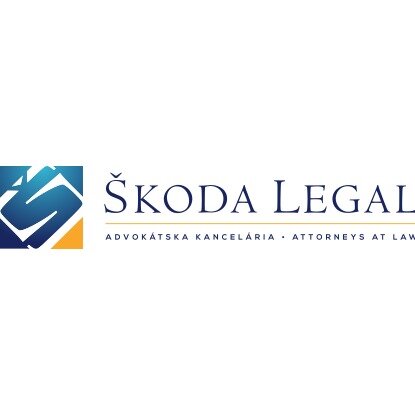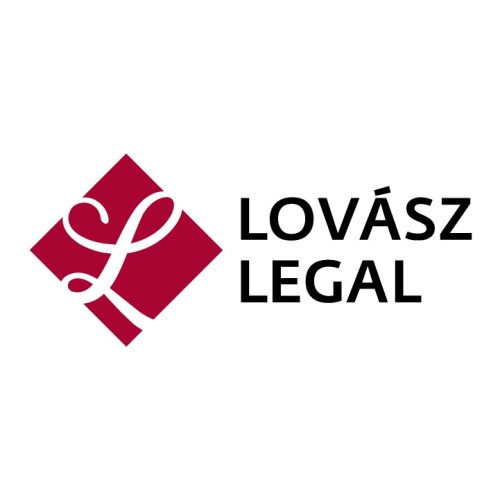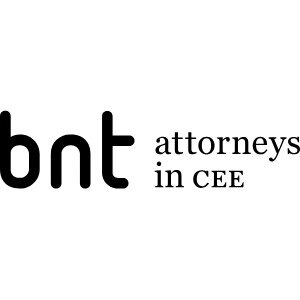Best Antitrust Litigation Lawyers in Slovakia
Share your needs with us, get contacted by law firms.
Free. Takes 2 min.
Or refine your search by selecting a city:
List of the best lawyers in Slovakia
About Antitrust Litigation Law in Slovakia
Antitrust litigation in Slovakia involves legal actions related to the enforcement of competition laws. These laws are designed to promote fair competition and prevent businesses from engaging in practices that could harm competitors or consumers, such as price fixing, market sharing, bid rigging, or abuse of dominant position. Slovakia's antitrust regulations align closely with European Union standards, given the country's membership in the EU. Both individuals and businesses may become involved in antitrust disputes, whether as claimants, defendants, or third parties impacted by anti-competitive conduct.
Why You May Need a Lawyer
There are several situations where legal assistance is essential in antitrust matters. Common scenarios include:
- Being accused of participating in a cartel or anti-competitive agreement.
- Investigations by the Antimonopoly Office of the Slovak Republic (AMO SR).
- Challenging anti-competitive behavior by competitors or suppliers.
- Seeking damages for losses due to price fixing or market manipulation.
- Responding to dawn raids (surprise inspections) by authorities.
- Complying with merger control regulations and submitting notification of mergers or acquisitions.
- Appealing fines or sanctions imposed for competition law infringing conduct.
Antitrust cases are complex and require detailed understanding of both local and EU law, as well as procedural rules. An experienced lawyer can help you protect your interests, navigate investigations, ensure compliance, and represent you in court or administrative proceedings.
Local Laws Overview
The Slovak legal framework for antitrust litigation is primarily based on Act No. 136/2001 Coll. on Protection of Economic Competition, as amended. This legislation prohibits agreements or coordinated practices that restrict competition, regulates abuse of dominant market positions, and sets rules for merger control. The Antimonopoly Office of the Slovak Republic (AMO SR) is the main body responsible for investigating and enforcing competition laws. In addition to Slovak law, EU competition law, particularly Articles 101 and 102 of the Treaty on the Functioning of the European Union (TFEU), can be directly applicable. Both administrative and judicial avenues exist for litigating antitrust issues, with specialized courts handling competition cases.
Frequently Asked Questions
What is considered anti-competitive behavior under Slovak law?
Anti-competitive behavior includes agreements or practices between businesses that restrict competition, such as price fixing, market sharing, and bid rigging, as well as abusing a dominant market position by eliminating or restricting competitors.
Who investigates antitrust violations in Slovakia?
The Antimonopoly Office of the Slovak Republic (AMO SR) is responsible for investigating potential breaches of competition law and may initiate proceedings on its own or based on complaints.
Can individuals or companies sue for damages caused by anti-competitive behavior?
Yes, both individuals and businesses can file damages claims if they have suffered harm due to violations of antitrust laws. Courts in Slovakia can award compensation.
What happens during a dawn raid?
A dawn raid is a surprise inspection by the antitrust authority, where officials collect evidence of suspected violations. Companies are legally obliged to cooperate but have the right to legal representation.
Do Slovak antitrust laws apply to foreign companies?
Yes, if the conduct affects the Slovak market, foreign companies can be subject to enforcement by Slovak authorities, even if the companies are based outside Slovakia.
What are the penalties for breaching competition laws?
Penalties include substantial fines, orders to cease anti-competitive practices, and, in severe cases, criminal sanctions for individuals involved in cartel conduct.
Is it necessary to notify mergers or acquisitions?
Yes, certain mergers and acquisitions must be notified to the AMO SR if they meet specific turnover thresholds, and cannot be completed until cleared by the authority.
How long do antitrust investigations typically take?
The duration can vary based on the complexity of the case. Investigations may last from several months to more than a year, especially if court proceedings or appeals are involved.
Can decisions of the Antimonopoly Office be appealed?
Yes, decisions by the AMO SR can be appealed to Slovak courts, which will review the case and may uphold, overturn, or remit decisions for further proceedings.
How can I ensure compliance with antitrust law?
It is recommended to seek legal advice, establish internal compliance programs, provide staff training, and conduct regular audits of business practices to mitigate antitrust risks.
Additional Resources
For those seeking assistance or more information on antitrust law and litigation in Slovakia, consider consulting the following resources:
- Antimonopoly Office of the Slovak Republic (AMO SR)
- European Commission - Directorate-General for Competition
- Slovak Bar Association
- Local law firms with competition law expertise
- Consumer protection associations
- Chambers of Commerce and business associations
- Legal research databases focused on Slovak and EU competition law
Next Steps
If you believe you are affected by anti-competitive practices or are facing an investigation by authorities, it is essential to seek prompt legal advice. Gather any relevant documents, correspondences, and records that may support your case or defense. Contact a qualified lawyer with experience in antitrust litigation in Slovakia, who can analyze your situation, inform you of your rights and obligations, and represent you before administrative bodies or courts. Proactive legal help can make a significant difference in the outcome of your case and your ability to comply with complex competition rules.
Lawzana helps you find the best lawyers and law firms in Slovakia through a curated and pre-screened list of qualified legal professionals. Our platform offers rankings and detailed profiles of attorneys and law firms, allowing you to compare based on practice areas, including Antitrust Litigation, experience, and client feedback.
Each profile includes a description of the firm's areas of practice, client reviews, team members and partners, year of establishment, spoken languages, office locations, contact information, social media presence, and any published articles or resources. Most firms on our platform speak English and are experienced in both local and international legal matters.
Get a quote from top-rated law firms in Slovakia — quickly, securely, and without unnecessary hassle.
Disclaimer:
The information provided on this page is for general informational purposes only and does not constitute legal advice. While we strive to ensure the accuracy and relevance of the content, legal information may change over time, and interpretations of the law can vary. You should always consult with a qualified legal professional for advice specific to your situation.
We disclaim all liability for actions taken or not taken based on the content of this page. If you believe any information is incorrect or outdated, please contact us, and we will review and update it where appropriate.
Browse antitrust litigation law firms by city in Slovakia
Refine your search by selecting a city.

















